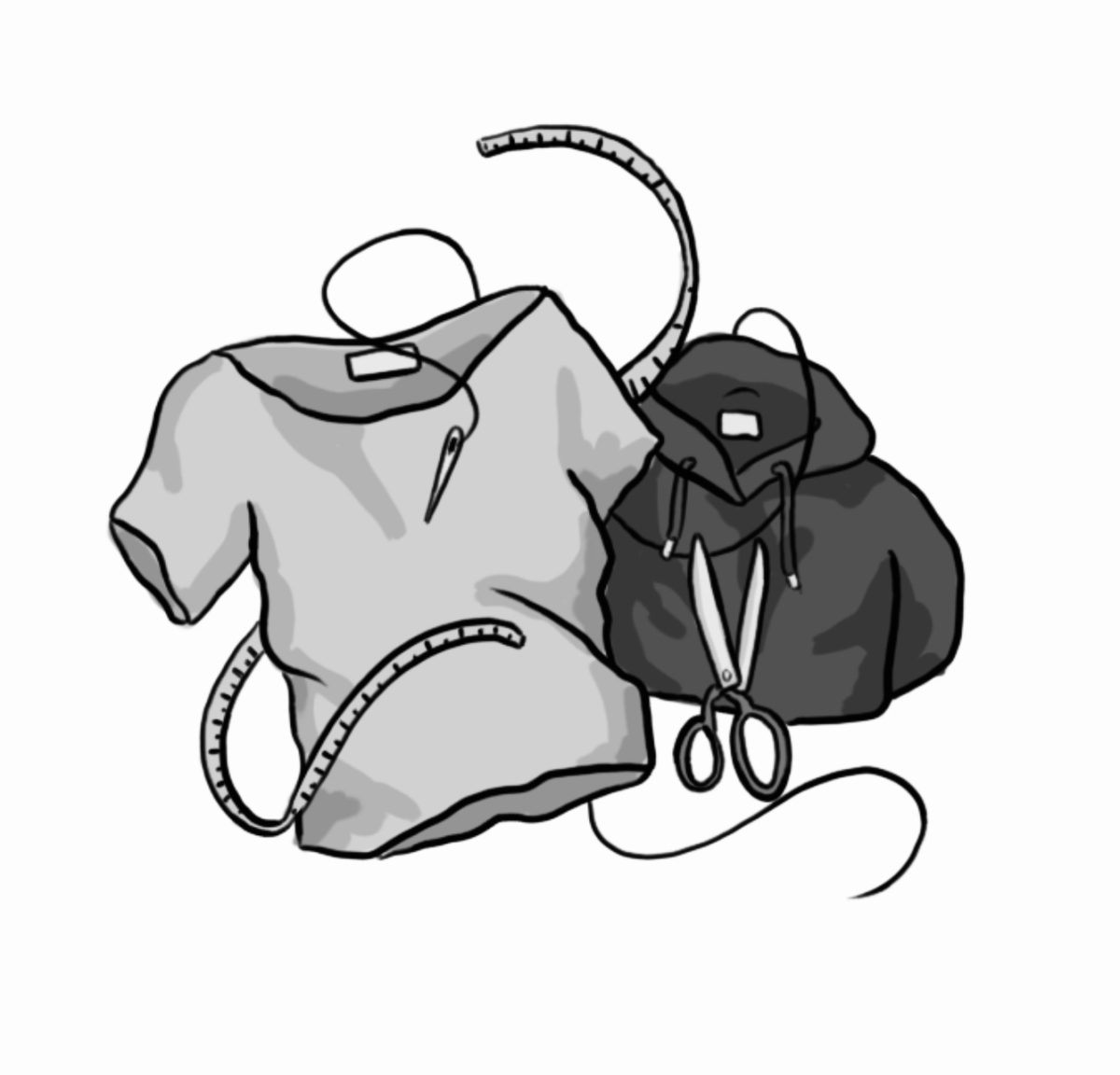Fast fashion is killing us. According to earth.org and the UN Convention on Climate Change, the fashion industry makes up 10% of world pollution. It consumes more energy than the aviation and shipping industries combined: energy we can’t afford to spend when global warming is actively threatening the planet and our lives. Chances are that at least one of the items you are wearing right now was cheaply made by companies that produce shocking amounts of waste.
It’s not all doom and gloom, though. In response to fast-fashion crazes and the increasing pace of the trend cycle, there has been a rise in sustainable actions like thrifting, mending, and repurposing. These practices are far from new, but as awareness of fast fashion’s consequences has spread, they’ve gained a new life. Minnetonka students have stepped up to participate in the “slow fashion” craze, as some have dubbed it. Legacy Club has collected and donated items to those in need multiple times, and the Earth Club’s annual clothing swaps have been a huge hit. As one of Earth Club’s presidents, Izzy Gensmer, ‘26, says, “the community really loves the swaps,” and “the reward [for organizing them] is so worth it.” Gensmer adds, “the amount of clothes that we are able to save from landfills [during the swaps] is so important,” echoing the message of sustainability. This February, Earth Club will also be hosting a Formal Wear Clothing Swap in anticipation of prom and Sweethearts, so start dusting off your old dresses and pantsuits and be ready to source your own outfit sustainably!
Participating in slow fashion doesn’t necessarily mean you have to stop buying clothes altogether. It just means being conscientious about the things you buy and considering their origin and the frequency at which you will use them. Ellen Ingham, ‘26, buys most of her jewelry from small companies on Etsy, and prefers to order from small businesses on Instagram over massive corporations. She “[thinks] thrifting is cool,” she “just [needs] to do it more.” In a time when it has become normal to order massive amounts of cheaply made clothes from companies like Shein or FashionNova to keep up with the latest fashion trends, choose to think green and protect our planet.































